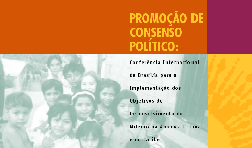Current Working Groups
The Communications and Outreach Working Group promotes current LARRP projects; acts as a liaison with the broader Latin Americanist, academic, and research library communities; and recruits membership and participation in LARRP. More information about this working group can be found in the Communications and Outreach Workspace. The Working Group’s charge includes but is not limited to the following:
- Contact potential LARRP members to invite their participation
- Provide orientation to new LARRP members
- Publicize LARRP activities in appropriate venues
- Develop and implement a plan to use social media to report LARRP activities and generate interest
- Facilitate displays and/or exhibits about LARRP at relevant events as approved by the LARRP Advisory Board
- Develop publicity materials to promote LARRP activities.
- Conduct periodic surveys of LARRP members and other constituencies to inform future programs and priorities
The Collections and Analysis Working Group improves the scholarly experience through targeted activities to gather and analyze data, and to launch follow-on collaborative initiatives. The Working Group’s charge includes but is not limited to the following:
- Gather and present data that reflect members’ activities and allow analysis of members’ acquisitions trends
- Identify specific areas that are of interest for collection building and/or underrepresented (e.g. countries, topics, formats).
- Map and assess collaborative collection development initiatives and other cooperative mechanisms that may impact LARRP activity
- Update the Working Group’s tools for data gathering and analysis
- Assess new forms of scholarly communication and popular expression, particularly those based in digital media, in order to identify emerging priorities and needs related to collections and content
The Digital Initiatives Working Group encourages the production of digital resources on Latin America. The Working Group’s charge includes but is not limited to the following:
- Develop and implement competitions for potential LARRP support of digital projects, defining both guidelines and criteria for participation, using established standards and best practices for digitization of all formats that encompass capture, metadata, interfaces for discovery and access, and provisions for long-term retention.
- Recognize and acknowledge the accomplishments of digital initiatives, whether carried out with LARRP support or conducted independently
- Partner with other institutions, including information creators outside of North America, to provide relevant digital objects in open access formats
- Participate in conversations to suggest strategic priorities for the Latin Americanist community in the digital realm
The Resource Discovery Working Group facilitates the visibility of research resources for Latin America. This group liaises with content aggregators, discovery tool providers, and other information creators for the benefit of the Latin Americanist research community. The Working Group’s charge includes but is not limited to the following:
- Review and disseminate current best practices in resource discovery
- Identify potential areas for collaboration to enhance resource discovery by Latin Americanist scholars.
- Advocate for the inclusion of Latin American related resources in discovery tools (Summon, Primo, etc.), indexes, and databases
- Advise LARRP and its members as to best practices in ensuring the discoverability and usability of the research resources, both analog and digital, that they variously collect, link to, or create
Previous Working Groups
The Distributed Resources Working Group maintains and tracks present collecting responsibilities. It also helps new participants in LARRP’s Distributed Resources Project choose an area for collecting specialization based both on their priorities and on what other participants are collecting. This working group issues annual calls for participant reports on any available information on budget/expense figures, acquisitions and receipts, cataloging output, and anecdotal accounts of special purchases. More information about this working group can be found in the Distributed Resources Workspace.
The Official Documents Working Group explored avenues for providing greater access to Latin American Official Documents. This working group also oversaw the Argentine and Mexican Presidential Messages Digital Database. More information about this working group can be found in the Official Documents Workspace.
The Open Archives Portal Working Group advised the project directors on issues related to the development of Open Archives Portal services at LANIC, with an initial focus on Latin American social sciences grey literature. It also identified organizations that produce information appropriate for digitization under the project guidelines, reviewed publications and other materials of Latin American partner organizations to establish priorities for digitization, and publicized the Open Archives Portal project. More information about this working group can be found in the Open Archives Portal Workspace.
The Serials Working Group oversaw the Latin American Periodicals Table-of-Contents (LAPTOC), and coordinated inputting of table of contents by members. The LAPTOC project is described in greater detail on the LAPTOC project page. More information about this working group can be found in the Serials Working Group Workspace.
Reports, Member Lists, and other information related to the ongoing work of LARRP’s Working Groups can be found in the LARRP Workspaces.
The LARRP Workspaces are wiki tools that members can access to review and edit or add content. They are open to LARRP Members only. Contact the CRL representative for information on access to the Workspaces.
